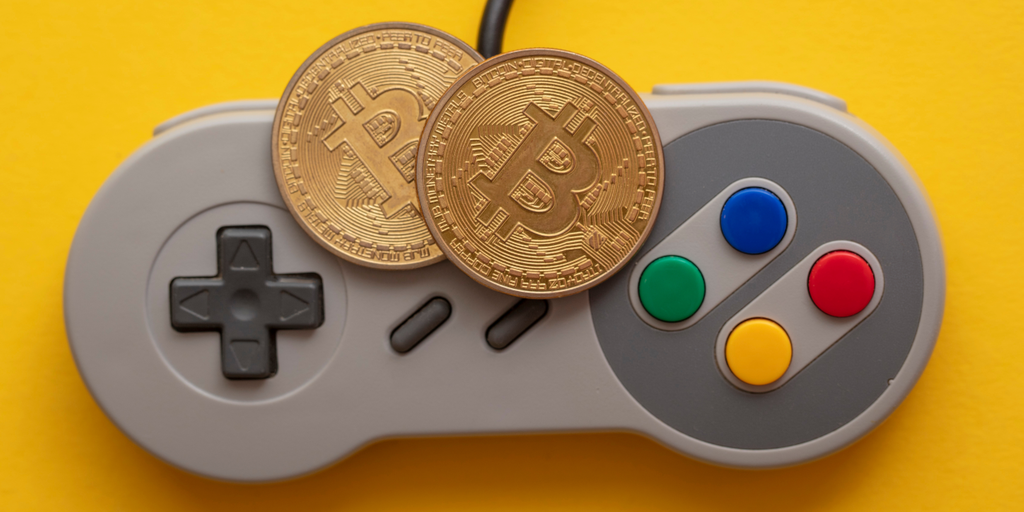Thanks to the Ordinals protocol, crypto users have inscribed more than 50 million bits of media on the Bitcoin blockchain over the last year, from artwork to profile pictures to, yes, even playable video games.
The Bitcoin-based alternative to NFTs lets users etch games and applications onto the chain, effectively preserving them for as long as the decentralized network lives. Some see this as a way to ensure classic games survive in an era in which digital games are delisted and hard to access. Others just think it’s cool or funny.
Whether you see it as a gimmick or a godsend, however, the fact remains that you can play some old-school games that are running on Bitcoin. None of these web-based games are officially sanctioned ports from the original developers, but there are pretty good renditions in the mix. Here are a handful worth checking out.
One of the latest and potentially most expansive options is an entire classic video game console—well, at least a digital recreation of it. A Bitcoin Ordinals project called Pizza Ninja from the team behind the Ninjalerts app announced in January 2024 that it has inscribed a customized Super Nintendo emulator onto Bitcoin.
People who buy the upcoming Pizza Ninja assets on Ordinals can use the emulator, which can be used legally to play public domain games or those that the user owns via digital copies called ROMs. The YouTube video above shows a brief demo of how it will work.
After inscribing the Super Nintendo emulator, the Ninjalerts team used newer Ordinals compression tech to put an emulator for the more powerful Nintendo 64 console onto Bitcoin. As with the SNES, Pizza Ninja profile picture (PFP) owners will be able to access the on-chain version of the emulated console, but will have to provide their own digital game copies to play.
In terms of fully self-contained games inscribed on Bitcoin, it’s tough to beat Pac-Man. This rendition, minted as Ordinals inscription #189,058 in February 2023, serves up a pretty pristine recreation of the original arcade smash, along with sequel Ms. Pac-Man and an unofficial Cookie-Man version inspired by “Sesame Street” icon Cookie Monster.
Tetris is widely considered a pretty perfect video game, captivating gamers for decades with its balance of simple mechanics and challenging pace as it ramps up. And now you can play Tetris on Bitcoin via Ordinals inscription #35,043,603. It’s pretty much the real deal, albeit with an odd new piece with six blocks. Also, the mouse controls aren’t super ideal. But it’s free to play, it’s Tetris, and it’s running on Bitcoin.
Maybe you noticed the quotation marks above around Doom. That’s because this isn’t a direct port of the original, influential id Software first-person shooter classic. But it’s Doom-esque, plus it’s one of the earliest inscriptions from February 2023 at #466. This is one of the examples where it was probably inscribed as an experiment, or because they could, rather than serving any notable preservation need. Still, if you’re wondering whether Bitcoin can run Doom, the answer is… kinda!
Text-based adventure Zork is one of the early, influential video games, and it’s also one of the first games ever inscribed on Bitcoin at Ordinals inscription #146. The 1977 Infocom classic is sure to feel jarring to modern players who grew up on 3D worlds, but it’s playable, and it still does a surprising job of serving up a compelling atmosphere via text on a black screen. And seeing this kind of retro gem up and running on Bitcoin is interesting.
Even earlier than Zork on Bitcoin was this rendition of Snake, the classic pre-smartphone mobile game. It’s simplistic in approach: You’ll use the directional keys to turn the blocky snake and try to pick up additional blocks, extending your size in the process. Inscribed as Ordinal #142, this version is super fast and your snake can just loop from one edge of the screen to the other without dying, which means there’s not much challenge in the mix. But it’s an early Ordinals experiment that undoubtedly leads to many others ahead.
Editor’s note: This story was originally published on January 13, 2024 and last updated with new information on February 24.

